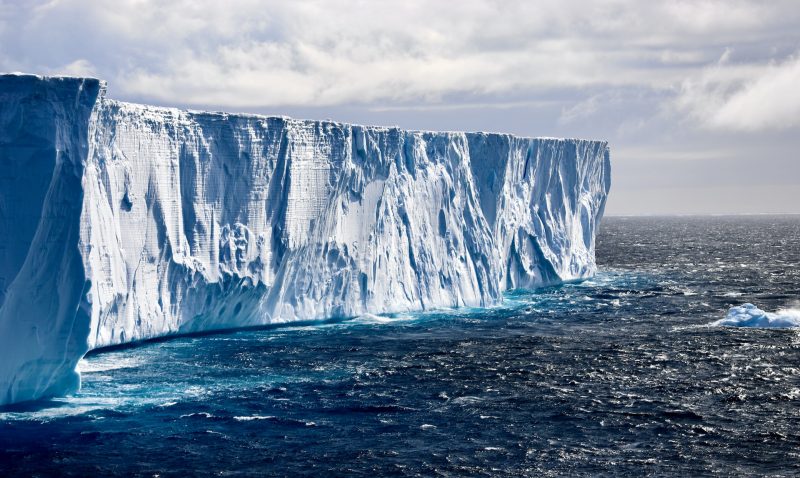
The 33rd annual State of the Climate report, an international assessment on global climate, came out on September 6, 2023. The University of Colorado Boulder explained in a press release what the report said about the planet’s coldest and driest continent: Antarctica. In 2022, Antarctica experienced both an unprecedented heatwave and extreme precipitation. As Rajashree Tri Datta of CU Boulder, a contributor to the report, said:
My hope is that the public starts to see both the fragility and complexity of these polar regions.
Antarctica and the rest of Earth
Antarctica may seem like an isolated island at the end of the Earth, but changes here could have major impacts on the rest of the world. As a matter of fact, the icy continent stores 70% of all fresh water on the planet. Datta said:
Most of the planet’s fresh water is held on the ice sheet of Antarctica. What happens there ends up affecting coasts across the world, and what affects coasts across the world impacts everything from agriculture to migration patterns.
Heatwaves in Antarctica
Heatwaves can strike typically frigid places like Antarctica, too. Here’s what the State of the Climate report said about 2022:
It was the second-warmest year on record for all five of the long-term staffed weather stations on the Antarctic Peninsula. In East Antarctica, a heatwave event led to a new all-time record-high temperature of -9.4 C [15.08 F] on March 18 at Dome C. [That’s 44 C or 79 F above the March average.] This was followed by the collapse of the critically unstable Conger Ice Shelf. More than 100 daily low sea-ice extent and sea-ice area records were set in 2022, including two new all-time annual record lows in net sea-ice extent and area in February.
As UC Boulder noted in their press release, March is normally the transition month between summer and winter, when temperatures drop rapidly. Datta thinks the south polar heatwave will strike a chord with people who have also experienced heatwaves. She said:
They know what a heatwave means. They experience it in their daily lives, and it is impacting Antarctica as well, although in very different ways.
Higher snowfall protects against sea level rise
The wild weather in Antarctica last year also included unprecedented snowfall in East Antarctica in March. Notably, the snowfall in March 2022 was triple the average for the month compared to the March average between 1991 and 2020. Therefore, the East Antarctic ice sheet had its highest amount of snow and ice in the 40 years since the observational data became available. Datta explained why this is a positive for planet Earth:
The strong precipitation this year is very interesting, because it offsets the ice loss around the margins of Antarctica. The snowfall this year actually protected the world against sea level rise.
Atmospheric rivers to blame
The culprit behind the heatwave and record precipitation was a weather pattern called an atmospheric river. If that sounds familiar, that’s because California was inundated with precipitation in early 2023 due to atmospheric rivers. In Antarctica in 2022, storms sucked moisture from lower latitudes and brought warm air and heavy precipitation to the southernmost continent.
Precipitation in Antarctica usually falls as snow. But Datta explained that atmospheric rivers could bring more heat than they did in 2022. An atmospheric river with more heat could contribute to more surface melt or bring rain. And that, in turn, would drive up sea levels, affecting billions of people around the world. Datta said that Greenland, which is much warmer than Antarctica, is already feeling many of these impacts.
Datta summed up:
The report adds pieces to the larger puzzle of how climate change can impact Antarctica. Many of these dramatic events in 2022, and further research into their causes and effects, can arm us with a better understanding of our potential future.
Bottom line: Antarctica experienced wild weather in 2022, from heatwaves to an increase of snow and ice on its eastern side, thanks to atmospheric rivers.
Source: State of the Climate Report 2022











